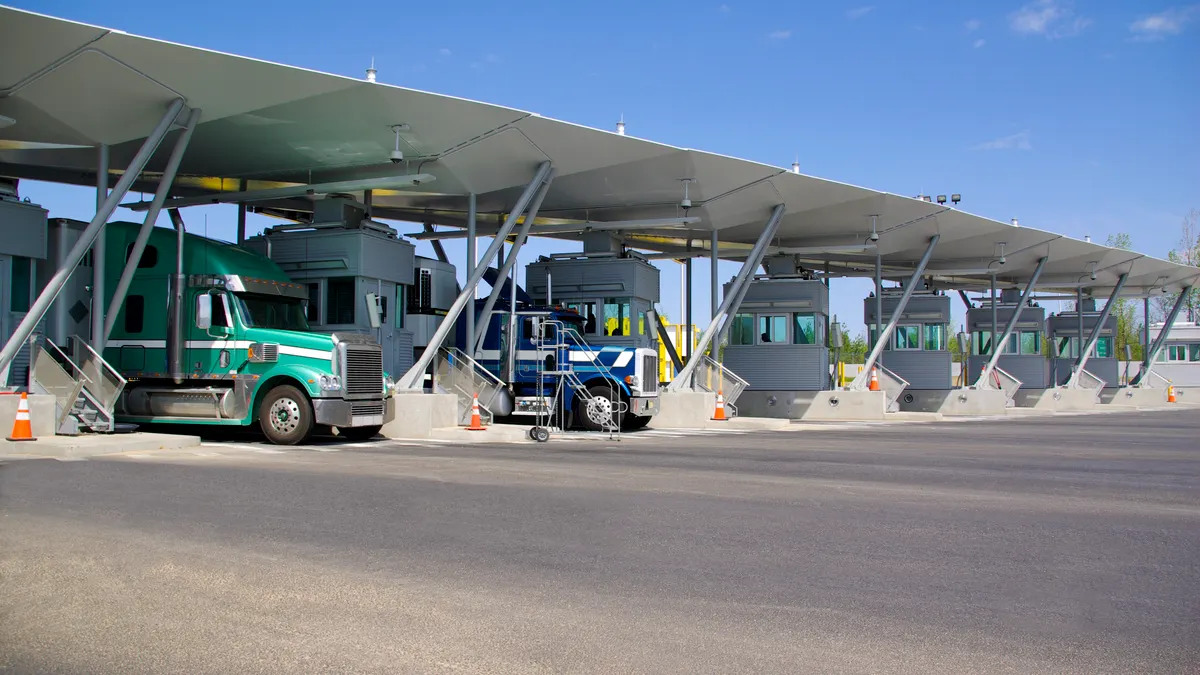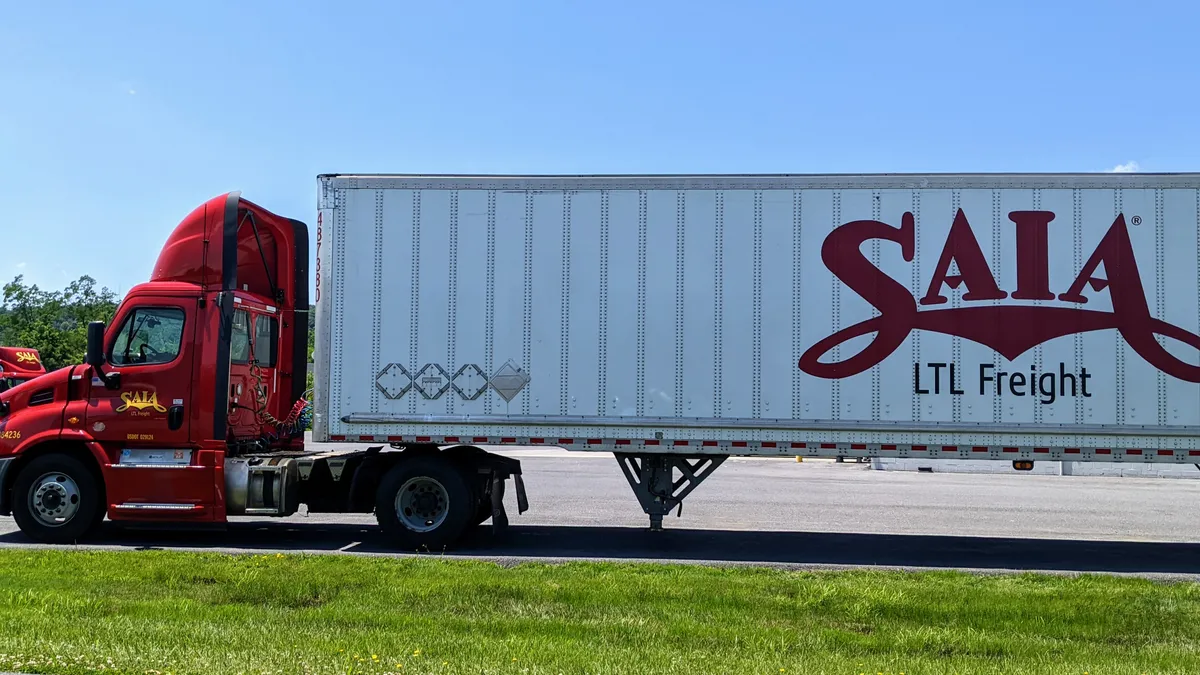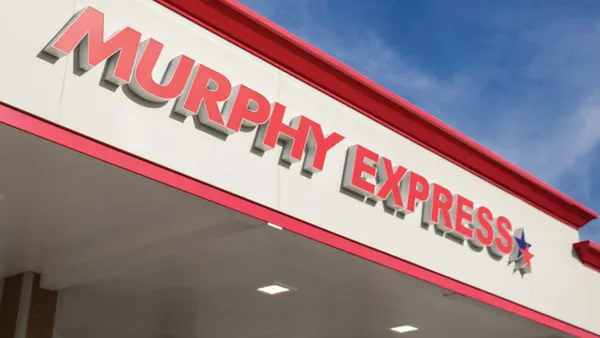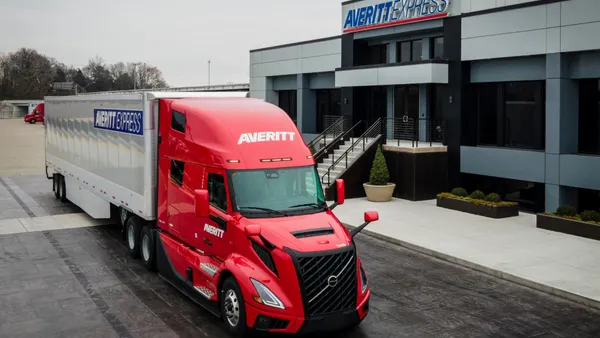Dive Brief:
- Volvo Group, maker of Mack and Volvo trucks, plans to "cautiously restart" production in Europe, North America and Brazil "on low levels" at the end of April and beginning of May, CEO Martin Lundstedt said in Volvo Group's earnings report Thursday. "We will then gradually increase output to a new, lower level of demand," he said. U.S. Volvo and Mack plants announced idling in March and extensions in April.
- Lundstedt said efforts to slow the COVID-19 pandemic have had a severe impact on Volvo as of mid-March, when its global supply chain was disrupted and production halted in most parts of Volvo operations. In Q1 2020, Volvo net sales were $9.07 billion, down 16% year over year. Deliveries of trucks dropped 23.6% from 58,594 in Q1 2019 to 44,765 in Q1 2020.
- Volvo's North American orders were down by 13% to 4,732 trucks year over year, while deliveries decreased by 38% to 10,660 trucks, as a consequence of "increasingly cautious customers and dealers canceling already placed orders," Lundstedt said. Volvo saw a staggering drop from February to March of this year, as net orders of new trucks dropped 75%.
Dive Insight:
Truck manufacturers already faced an environment of caution in 2020, as fleets bought big in 2018 and 2019, in response to a surge in freight demand. With fleets near full, demand was bound to drop or plateau in 2020. But then the coronavirus appeared worldwide, and orders for Class 8 trucks dropped to their worst levels since the Great Recession and its weak recovery year of 2010, according to FTR Transportation Intelligence.
Still, manufacturers were hoping to attract Class 8 truck buyers with new and improved tractors, loaded with technological advances and better fuel mileage. Volvo is working on smart trucks that can communicate with the dispatch office when the truck's computers estimate repair will be needed. And Paccar Kenworth said in February it will work with Meritor on electric powertrains for the Kenworth T680E battery-electric vehicles, according to Heavy Duty Trucking.
In February, Volvo launched a new set of trucks with a focus on the driver environment, safety and productivity. Volvo officials said it was their biggest launch in many years and sought to attract buyers based on the competitive design and technology. In April, Daimler announced it would establish a joint venture to develop and produce fuel cell systems for heavy-duty vehicles with Daimler Truck AG.
But COVID-19 forced Mack and Volvo to idle plants to prevent the spread of the virus. To reopen, the plan is to work out any problems with the supply chain, which could leave factories without the necessary materials to complete a truck or car. "During the ramp-up, we will be working hard together with our suppliers to minimize disturbances," Lundstedt said.
OEMs will have to manage a new, troublesome environment. ACT Research said preliminary orders of Class 8 trucks in March fell to the lowest since February 2010. ACT reported orders at 7,800 in March, down 51% year over year.
FTR reported preliminary North American Class 8 orders plummeted in March to 7,400 units, "the lowest order total since 2010," which it attributed to a "sharp and sudden downturn in economic conditions."
Buyers have hit the pause button, said Don Ake, FTR vice president of commercial vehicles, in his blog.
"It is expected that most fleets will pause their replacement cycles due to the crisis," Ake wrote. "Large fleets that have immediate needs and the financial resources will continue to place modest orders. Additionally, smaller fleets may tap into the used truck market for their short-term needs to reduce the financial risk."
Ake wrote Q2 will be tough on the Class 8 market, and he described Q3 as "still highly uncertain."
Lundstedt said Volvo declined to offer forecasts for the truck market demand for 2020. Volvo joins rival OEM Paccar, which also suspended guidance for the rest of the year.








